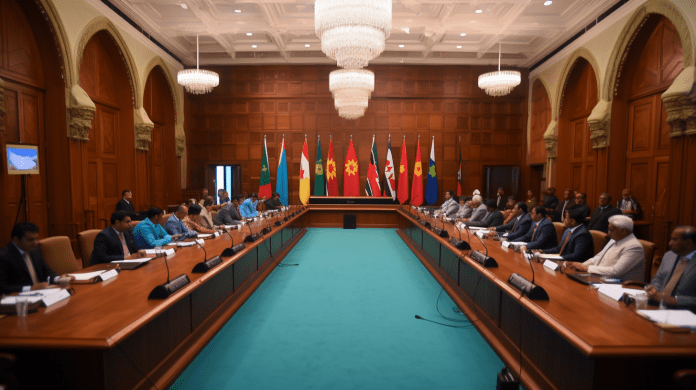Photo was created by Webthat using MidJourney
Britain’s Largest SME Representative Group Criticizes Prime Minister’s Business Council
The Federation of Small Businesses (FSB), Britain’s most influential representative group for smaller employers, has voiced strong criticism of Prime Minister Rishi Sunak’s newly formed Business Council. The council, comprising prominent CEOs and chairs from FTSE-100 companies, has come under fire for excluding SMEs from its membership. The FSB expressed concerns that the focus on “corporate bigwigs” and “suits” fails to represent the diversity of the UK’s 5.5 million-strong business community.
Lack of Diversity in the New Business Council
The Business Council, consisting of 14 members, is dominated by CEOs and chairs of major companies listed on London’s blue-chip share index. With only one exception—Demis Hassabis, CEO of Google DeepMind—SMEs are notably absent from the council’s roster. The FSB pointed out that this lack of diversity could hinder effective policymaking, as the unique challenges faced by small businesses in local communities and high streets may not be adequately addressed.
FSB Challenges the Council’s Effectiveness
The exclusion of SMEs from the Business Council raises questions about its ability to effectively address the needs of the broader business community. Craig Beaumont, the FSB’s external affairs chief, expressed concerns over the council’s understanding of issues such as fostering start-ups, utilizing AI, tackling Net Zero initiatives, and addressing late payment practices. The FSB argues that incorporating dynamic small firms into the council’s discussions could bring valuable disruptive ideas to public policy thinking.
Council’s Mission and Membership
The newly formed Business Council, comprising CEOs and chairs from prominent companies such as NatWest Group, Aviva, BAE Systems, and J Sainsbury, aims to discuss strategies to boost investment, innovation, and access to skills and talent. Companies like AstraZeneca, Barclays, Diageo, Shell, and SSE are also represented on the council. Combined, these businesses employ around 330,000 people across the UK.
Sunak’s Economic Strategy and Upcoming Election
As Prime Minister Rishi Sunak seeks support for his economic strategy ahead of the upcoming election, the effectiveness and inclusivity of the Business Council have become focal points of criticism. Despite grappling with high rates of inflation affecting various sectors, Sunak’s ability to address this concern and demonstrate a reduction in inflation over the next year could influence the Tories’ performance at the ballot box.
Labour’s Stance on Business-Friendly Policies
The current opposition party, Labour, under leader Sir Keir Starmer, has been working to reposition itself as a business-friendly government-in-waiting. In contrast to the strained relationship between private sector bosses and former Prime Minister Boris Johnson, Labour is advocating for a more inclusive approach to policymaking that considers the diverse needs of SMEs and larger corporations alike.

